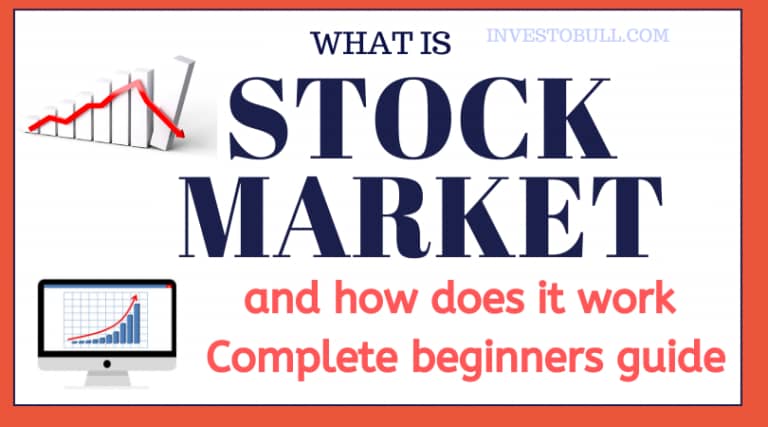The stock market is a fascinating yet often misunderstood place. Many people hear stories, advice, or warnings about investing that sound convincing but are actually myths. These myths can confuse beginners and even experienced investors, sometimes leading to poor decisions and financial losses. Research from the University of Michigan Ross School of Business shows that misconceptions about the stock market are widespread, and they often prevent people from investing wisely.
If you’ve ever wondered if investing is just gambling, or if you need to be rich or an expert to succeed, you’re not alone. These myths persist because they are easy to believe and spread quickly. But what does the truth look like? How do experts view these common ideas? Let’s dive into the top 10 stock market myths and break them down with facts, data, and expert insights.

—
Myth 1: Investing in Stocks Is Just Like Gambling
Many people think investing in stocks is no different from gambling in a casino. They imagine that buying shares is a risky bet, and the outcome depends mostly on luck. This myth is one of the most damaging because it scares people away from investing, which is a proven way to build wealth over time.
Why This Myth Is Wrong
Investing is not about luck; it’s about making informed decisions based on research and analysis. When you invest, you buy a piece of a company. That company has assets, earnings, management, and a business plan. These factors influence the company’s stock price over time.
According to a study by the CFA Institute, investors who understand company fundamentals and economic trends can reduce risk and improve returns. Unlike gambling, where the odds are fixed and usually against the player, investing rewards knowledge and patience.
Expert Insight:
Warren Buffett, one of the world’s most successful investors, famously said:
*“Risk comes from not knowing what you’re doing.”*
This means that if you educate yourself about the companies and markets, you can manage risk effectively. It’s not about chance but about understanding.
Investopedia explains that investing involves strategic planning, diversification, and long-term thinking, which are not part of gambling. A report by Dalbar Inc. found that the average investor’s returns lag behind the market because of emotional decisions, not because the market is a gamble.
—
Myth 2: The Stock Market Is Only for the Rich or Experts
Many believe that only wealthy people or financial experts can invest in the stock market. This myth discourages beginners from even trying, thinking they don’t have enough money or knowledge to participate.
Why This Myth Is False
The reality is that the stock market is accessible to almost everyone today. Technology has made investing easy and affordable. Many online brokerages allow you to start with as little as $5 or $10. Robo-advisors and apps provide automated investing with low fees and educational support.
The democratization of investing means that you don’t need a big bankroll or a finance degree to get started. The key is to start small, learn as you go, and stay consistent.
Expert Insight:
Financial expert Suze Orman says:
*“You don’t need to be rich to invest, but you need to invest to be rich.”*
This highlights that the habit of investing, no matter how small, is what builds wealth over time.
According to a 2023 report by the U.S. Securities and Exchange Commission (SEC), over 60% of Americans own stocks either directly or through retirement accounts, showing that investing is no longer just for the wealthy elite.
—
Myth 3: You Can Time the Market Perfectly
A popular myth is that investors can predict the best moments to buy low and sell high by timing the market. Many try to guess when the market will rise or fall to maximize profits.
Why This Myth Is Misleading
Research shows that timing the market is extremely difficult, even for professional investors. Markets react instantly to new information, making short-term movements unpredictable. Trying to time the market often leads to missed opportunities and losses.
Northern Trust’s 2022 study found that investors who missed just a few of the best market days over a 20-year period saw significantly lower returns than those who stayed invested.
Expert Insight:
Peter Lynch, legendary mutual fund manager, said:
*“Far more money has been lost by investors preparing for corrections, or trying to anticipate corrections, than has been lost in the corrections themselves.”*
This means that staying invested is usually better than trying to guess market moves.
Data from J.P. Morgan Asset Management shows that a buy-and-hold strategy over 30 years outperformed attempts to time the market by a large margin.
—
Myth 4: IPOs Always Make You Rich
Initial Public Offerings (IPOs) often get a lot of hype. People expect that buying shares in a newly public company will lead to quick profits.
Why This Myth Is Risky
Many IPOs are volatile and can lose value after the initial excitement fades. The initial surge in price is often driven by speculation rather than company fundamentals.
For example, a study by Renaissance Capital found that while some IPOs perform well, many underperform the broader market in the first few years after going public.
Expert Insight:
As noted by Forbes, *“Investors should be cautious with IPOs and focus on companies with proven business models rather than hype.”*
Jumping into IPOs without proper research can lead to losses.
According to data from NASDAQ, nearly 40% of IPOs underperform the S&P 500 in their first three years.
—
Myth 5: Stocks That Have Fallen Will Always Bounce Back
Many investors think that if a stock’s price has dropped significantly, it’s a bargain that will recover soon.
Why This Myth Can Be Dangerous
A falling stock price can signal serious problems such as declining earnings, poor management, or industry challenges. Not all stocks recover, and some may continue to fall or even go bankrupt.
Investopedia warns that buying stocks just because they are cheap can lead to value traps—stocks that look cheap but are actually losing value.
Expert Insight:
Benjamin Graham, known as the father of value investing, advised:
*“Price is what you pay; value is what you get.”*
This means that a low price does not always mean good value.
A study by Morningstar found that nearly 25% of stocks trading near their 52-week lows failed to recover over a five-year period.
—
Myth 6: Long-Term Investing Is Risk-Free
Long-term investing is often recommended, but some believe it is completely risk-free.
Why This Myth Is Incorrect
While long-term investing generally reduces risk compared to short-term trading, it does not eliminate risk. Markets can experience prolonged downturns. For example, the U.S. stock market took nearly a decade to recover after the 2008 financial crisis.
Diversification and risk management are essential even for long-term investors.
Expert Insight:
John Bogle, founder of Vanguard Group, said:
*“The stock market is a device for transferring money from the impatient to the patient.”*
Patience helps, but understanding risk remains important.
Vanguard’s research shows that diversified portfolios tend to perform better over time but still face volatility and losses in some years.
—
Myth 7: High Returns Come Without High Risk
Some investments promise high returns with little or no risk. This myth attracts many investors but is rarely true.
Why This Myth Is Misleading
The risk-return tradeoff is a core principle of investing. Higher returns usually come with higher risk. Investments promising high returns with low risk should be treated with suspicion.
The SEC warns that such offers are often scams or very risky schemes.
Expert Insight:
As the SEC states, “If it sounds too good to be true, it probably is.”
Investors should be cautious and do thorough research.
Historically, high-return assets like small-cap stocks or emerging markets have shown higher volatility and risk compared to safer investments like government bonds.
—
Myth 8: You Need to Be a Financial Expert to Make Money
Many people avoid investing because they think it requires expert knowledge.
Why This Myth Is False
While understanding basics helps, you don’t need to be an expert to invest successfully. Simple strategies like investing in index funds or ETFs can provide solid returns with minimal effort.
Financial advisors and online resources make investing accessible to everyone.
Expert Insight
As one expert says, “Most market prognosticators are notoriously inaccurate.”
This means that trying to predict market movements is less effective than sticking to a simple plan.
A study by Morningstar found that passive index investing often outperforms actively managed funds over the long term.
—
Myth 9: Market Anomalies Guarantee Profits
Some investors believe in patterns like the “January effect” or “sell in May and go away” to make easy profits.
Why This Myth Is Unreliable
Research from the University of Michigan shows these anomalies are inconsistent and often disappear as more investors try to exploit them.
Relying on such patterns is risky and can lead to losses.
Expert Insight:
Financial experts recommend focusing on fundamentals and diversification rather than chasing short-term patterns.
A review of market anomalies by the CFA Institute found that many anomalies weaken over time and are not reliable investment strategies.
—
Myth 10: The Stock Market Is a Get-Rich-Quick Scheme
The most common myth is that the stock market can make you rich overnight.
Why This Myth Is Harmful
Successful investing requires time, discipline, and emotional control. The market rewards steady growth, not instant wealth.
Impulsive decisions often lead to losses.
Expert Insight:
A seasoned trader once said:
*“The stock market rewards patience, discipline, and long-term strategy, not instant millionaires.”*
This sums up the truth about investing.
Historical data shows that the average annual return of the S&P 500 is about 10%, which compounds over time but does not create instant fortunes.
—
Frequently Asked Questions (FAQs)
Q1. Is investing in stocks safer than gambling?
A: Yes. Investing is based on research and strategy, while gambling depends mostly on chance.
Q2. Can beginners start investing with little money?
A: Absolutely. Many platforms allow investing with small amounts and provide educational resources.
Q3. Should I try to time the market?
A: No. Timing the market is difficult and often leads to losses. Long-term investing is better.
Q4. Are IPOs safe investments?
A: Not always. IPOs can be volatile and risky. Research is important before investing.
Q5. Do stocks always recover after falling?
A: No. Some recover, but many do not. It’s crucial to evaluate the company’s fundamentals.
—
The stock market is often misunderstood because of myths that spread easily. By learning from experts and looking at real data, you can avoid these common mistakes. Investing is not about luck or quick wins. It’s about knowledge, patience, and smart decisions. Are you ready to invest with facts, not myths?
—
References and Further Reading
– [University of Michigan Ross School of Business Research](https://michiganross.umich.edu)
– [Investopedia: Investing vs Gambling](https://www.investopedia.com/terms/i/investing.asp)
– [Northern Trust Market Timing Study](https://www.northerntrust.com)
– [Forbes: IPO Performance](https://www.forbes.com/sites/investor)
– [Vanguard: Long-Term Investing](https://investor.vanguard.com)
– [U.S. Securities and Exchange Commission (SEC)](https://www.sec.gov)
– [Morningstar Research](https://www.morningstar.com)
– [CFA Institute](https://www.cfainstitute.org)
—










f74dd6
hxt3wn
zgk9mc
nx5amk
l2ghty
tbeahx
34lbcd